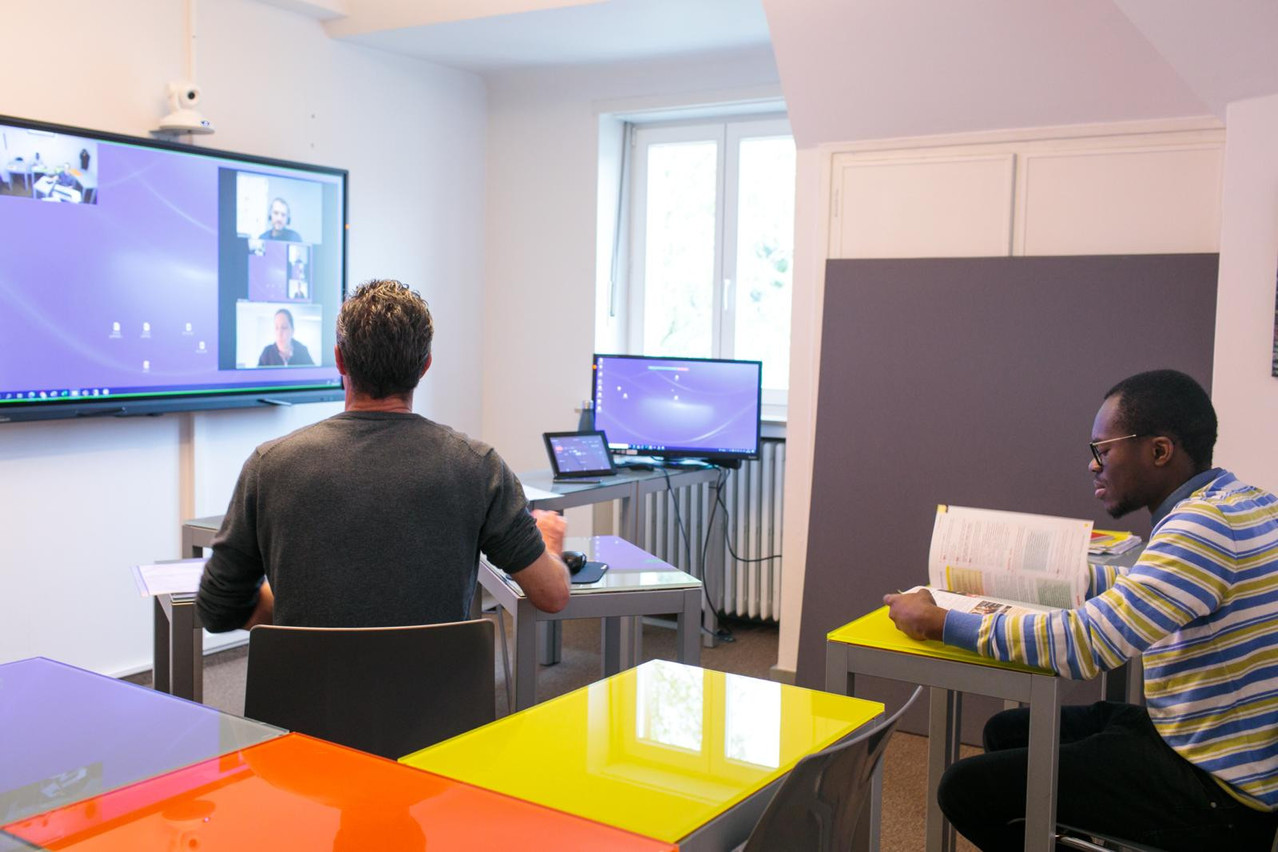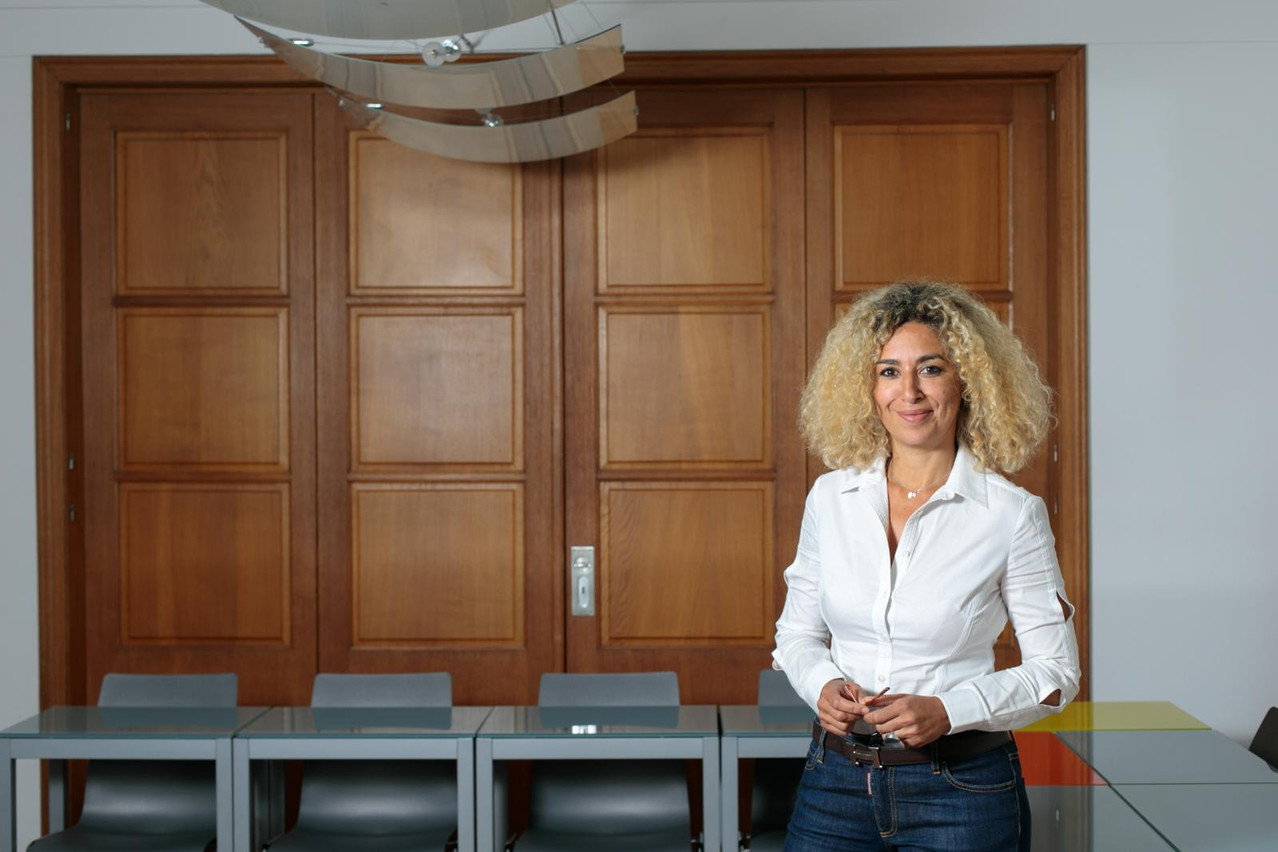With many employees still on partial remote working schedules, which prevents them coming to the language centre, Prolingua has retained its “phygital” language classes to allow students to join in from their home office. Deputy director Naouelle Tir explains that the language centre invested heavily in distance learning technology, including the installation of cameras in classrooms.
A few classes were put on hold completely during lockdown as students unable to attend physically opted out of digital lessons. But Tir reckons Prolingua managed to keep about 70% of its classes functioning.
Now that covid health restrictions have been more or less completely lifted, however, some students still prefer to dial in to classes. “We really would like to have them back at the school, to give lessons more life,” Tir says. But as more and more companies have been requesting the return of staff, they also want language teachers to hold lessons on their premises as before. “We can do that or organise lessons remotely. It is always the choice of the client,” Tir explains.
The money spent on remote learning technology was a logical step for Prolingua, which has long prioritised both financial and human resource investment in developing its language teaching.

The language centre has provided special training in teaching hybrid lessons Matic Zorman
The centre provided special training in teaching hybrid lessons and adapting body language, for instance, to the digital lesson experience. “You cannot teach behind the screen like you teach in a class. If you think you can, you are totally wrong,” says Tir. “In the classroom the students are totally focused on the teacher. But some of our teachers notice that in digital lessons students will be looking at their incoming emails…”
Focus on pedagogical development
One important new hire at Prolingua has been Mathieu Haym, the language centre’s director of pedagogy and human resources who arrived just over four months ago. He coordinates with the centre’s “seniors”--heads of department for English, French, Luxembourgish, Spanish, Portuguese, Italian and German--to not only ensure teaching standards are maintained, but also to develop Prolingua’s unique pedagogical tools. In addition, Prolingua employs an outside company to provide training, bring in new ideas and new protocols.
Prolingua teachers also need to master the language centre’s unique, tailor-made software. “This allows us to follow the progress of each student,” Haym says. So even if a regular teacher is on holiday or sick, another can step in and will know precisely what stage the student has reached.
Students have to engage with all kinds of pedagogical material
Language teaching itself also requires a multitude of components. “Students have to engage with all kinds of pedagogical material. So we need advertising, pictures, audio…we need extracts from newspapers,” Haym explains. To this end, Prolingua has created its own material from everyday sources and using vocabulary that students will be expected to learn specifically for the goal they are trying to achieve.
“That’s the big advantage of having teachers who are employees, because they know exactly the expectations. They can create material. You cannot do that working as a freelancer,” says Tir. “I think that's the biggest difference between us and other schools.”
More than simply teaching
Indeed, with employees in the marketplace upskilling constantly, so their language knowledge also has to meet new requirements. “One week before the class starts, whether it is for an individual or a group, we organise a first screening meeting to assess the spoken level as well as the targets of the class. So teachers have to adapt to the vocabulary that is needed.”
But Tir reckons that with the fast-moving pace of today’s adaptable business world, language teachers not only teach but also perform a kind of coaching. “Now, teaching is also about reassuring people who maybe have a new position. It goes really far beyond what it was in the past.”
Prolingua is also unique in Luxembourg in having the prestigious Equals label certification from the world leader in accreditation for language teaching organisations. The closest other school to have the accreditation is the University of Louvain.
Gaining the accreditation involves a rigorous audit every four years. “They audit us right down to the sofa we have in the teachers’ lounge,” Tir explains. “They talk to our clients, to their students, they have a look at the contents of the course, how the teachers are teaching, they do observations… everything.”
“Our students are actually very lucky,” adds Haym. “They follow classes that are prepared by people who dedicate their entire life to how to be able to provide the best classroom conditions.”

